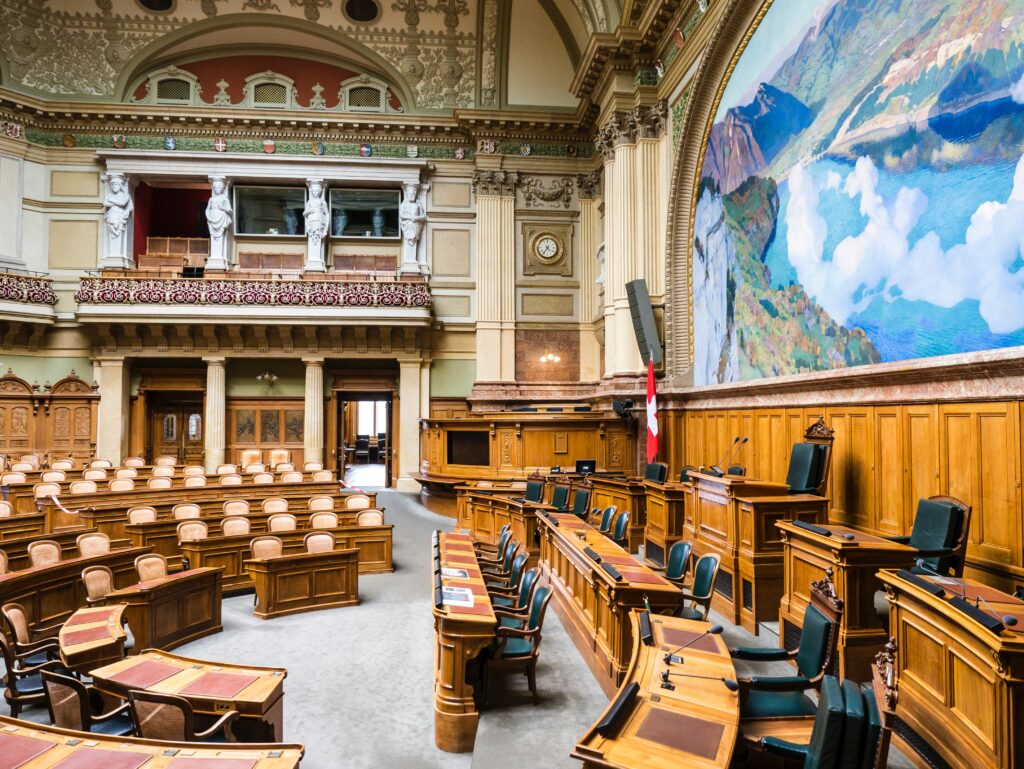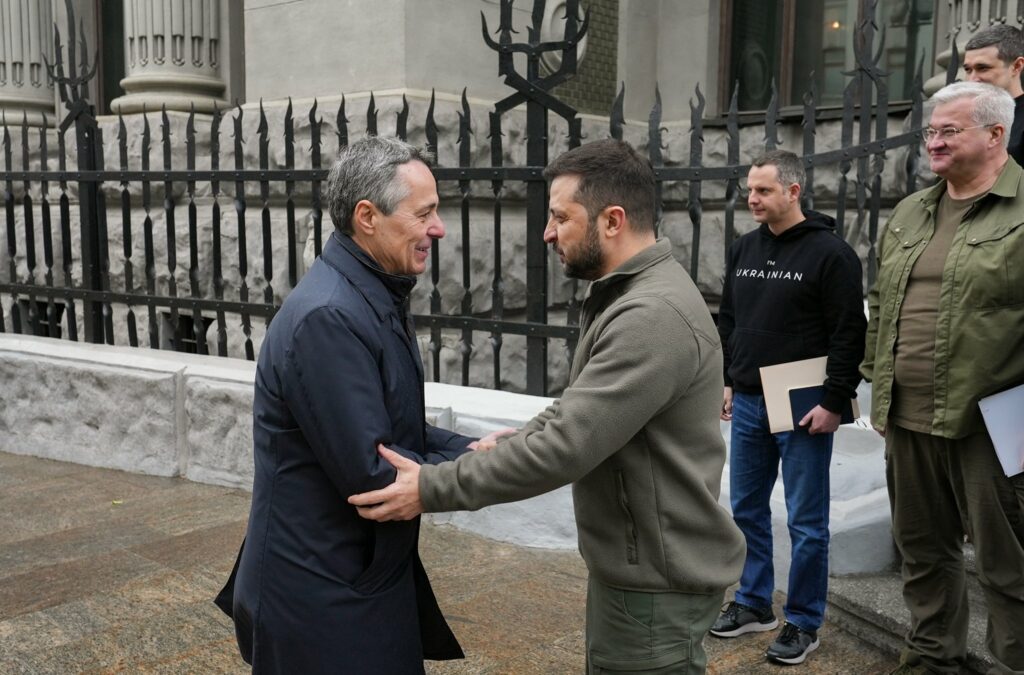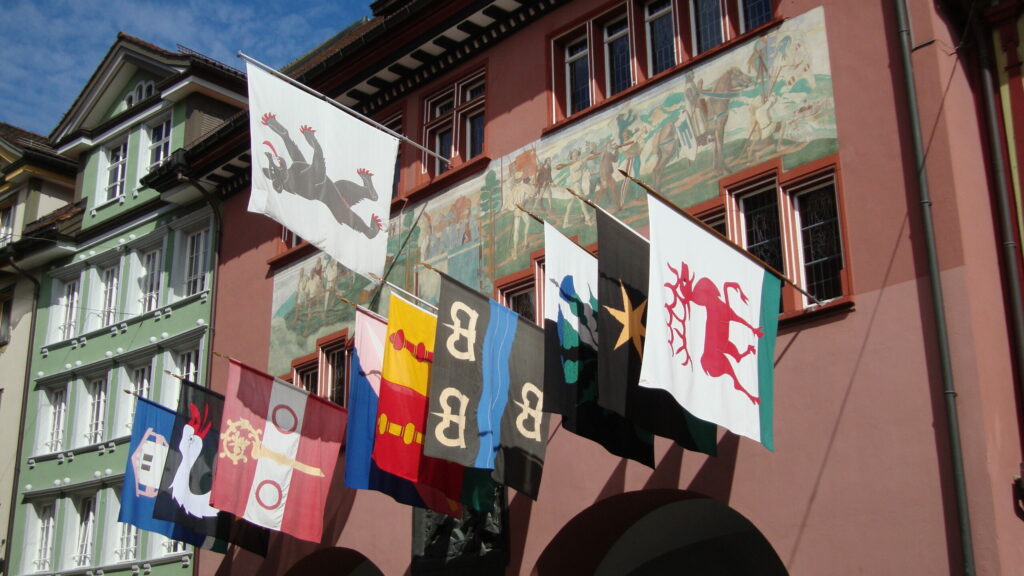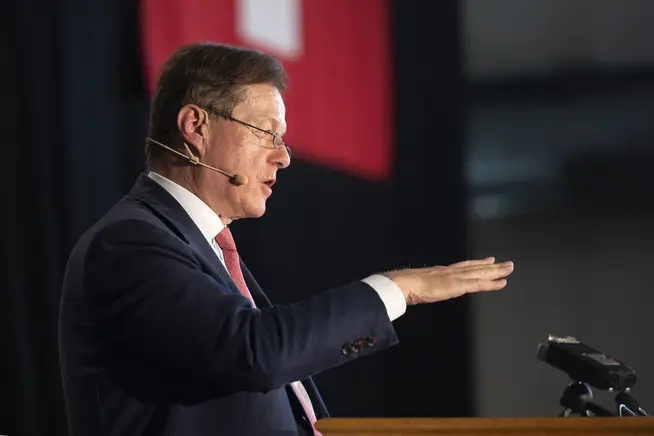Mi., Dez. 14th 2022

Inside Swiss Parliament: More members identify as center- and left-wing than the right-wing members.
Since the Treaty of Paris signing in 1815, Switzerland’s neutrality has long been heralded by its primary foreign policy principle, which mandates that the small Alpine country must not get involved in political or armed conflicts between other nations.
Surrounded by larger European countries, Switzerland has been entrusted with a unique role in mediating conflicts between nations. But recently, Switzerland has come under fire as it’s become more involved in helping Ukraine by implementing measures already carried out by the EU.
As a result, a domestic debate on the interpretation of neutrality has flared up between two opposing parties. On the one hand, it has stoked the conservative, right-wing Swiss People’s Party flames that want to strictly comply with the traditional version of neutrality tied to the Swiss Constitution. This means that in addition to not participating in foreign wars, Switzerland should not impose sanctions against Russia, freeze the assets of wealthy Russian oligarchs, or close airspace to flights coming from Russia…all of which Switzerland has already done.
The left-wing and center parties, which comprise most of the Swiss government, calls for more active neutrality. Since Switzerland joined the United Nations in 2002, it has adhered to EU sanctions packages against Russia as dictated by the UN.
But a classical interpretation of neutrality is unsuitable for Switzerland to be affiliated with either UN or EU membership. Let’s take a closer look at a brief history of the Swiss People’s Party and their objectives today.

Swiss President Ignazio Cassis this fall met with the President of Ukraine — further stoking the criticisms that neutral Switzerland has aligned itself “too much” with a country at war (Credit: Ignazio Cassis’ official Twitter account).
The transformation and dominance of the People’s Party movement, with roots in rural Swiss farming communities, has been trying to sway the Swiss political landscape by reverting the Constitution back to the traditional notion of neutrality. After all, the concept of neutrality has been woven into the fiber of Swiss identity and culture for centuries and, as such, should not be taken lightly.
During the past few months, Switzerland has banned NATO member countries from using its airspace to transport and supply Ukraine with weapons and ammunition. Moreover, it blocked Denmark and Germany from supplying Ukraine with ammunition and tanks purchased from Switzerland.
The Swiss Minister of Economy, Guy Parmelin – a member of the Swiss People’s Party – wrote a letter dated October 21 to German defense minister Christine Lambrecht. In the letter, he stated that “equal treatment arising from the law of neutrality does not allow Switzerland to approve a request for the export of war material from Switzerland to Ukraine as long as this country is involved in an international armed conflict.” Parmelin added that “the criteria for authorization as laid out in Swiss legislation regarding war material also excludes the delivery of war material to countries involved in such conflicts.”
Strict laws are in place for arms exports and war materials. As such, Switzerland mandates a re-export license from receiving countries – such as Germany, for instance —which would prohibit Germany from forwarding the war materials without Switzerland’s prior consent. Though this practice is internationally recognized, tensions with Germany have grown as Germany is the largest purchaser of Swiss weapons. As a result, the German government has threatened to stop importing arms from Switzerland.
Moreover, despite increased pressure domestically and from the international community, Switzerland has not backed down significantly from its draconian position but has made some concessions. For instance, in addition to participating in the EU-led sanctions, Switzerland is supplying humanitarian aid to Ukraine to help repair the energy supply infrastructures and restore drinking water supplies destroyed by Russian strikes.

More conservative cantons, mostly those in the eastern- and German-speaking areas, have higher concentrations of right-wing voters.
How did SVP come to power? The right-wing populist party has seen significant changes since the early 1990s. Heightened organizational structure, capacity for mobilization, and internal party cohesion have propelled it to become Switzerland’s electorally strongest right-winged party.
SVP’s roots began in the German-speaking Protestant regions of Switzerland and gradually expanded into the alpine country’s western, French-speaking Catholic areas. Over the years, it has succeeded in quashing the party’s internal differences by sometimes resorting to an authoritarian leadership style.
Also, direct democracy has proven to be a crucial turning point for SVP. In 1992, SVP started a national petition with the initiative “Against Illegal Immigration.” SVP employed the political scope for action using the direct democracy apparatus. This allowed SVP to highlight arguments and interpretations on given topics and offer legal solutions to proposals. This path was particularly successful in immigration policy. However, it also opened the doors for oppositional politics.
Social and political groups could register their opposition selectively, but without building crucial opposition to the political system. This allowed SVP to play a dual role as a party of opposition and pro-government by using elections as symbolic moments to declare itself as the authority of the “political class” and the credible spokesperson of the “people.” Simultaneously, SVP participated in political power as a National Council party.
SVP also possesses considerable financial holdings, far more significant than the other major political parties. SVP has been able to deploy funds used for political campaigns and marketing efficiently. Moreover, due to its heightened media-centric campaigns and communications, SVP has benefited from increased media influence and coverage, which has contributed to successfully reaching a ‘nationalization’ of the party. More specifically, it consolidated the federal Swiss referendum and electoral campaigns, unified under a common political agenda, and strengthened the party’s national organization.

Switzerland’s neutrality, which was once imposed on the country, has become one of its most identifiable attributes.
SVP party members range from traditional rural, primarily male voters who belong to the labor class to self-employed middle-class workers to Catholic voters and those living in urban areas.
The extreme right went on to slide into a diffuse subculture that became part of global right-wing extremism – a movement that has seen an exponential rise in the last few years. (Over the weekend, German police arrested 25 men and women who are allegedly part of a right extremist group planning a government coup.) In 2021, members of these right-wing Swiss groups protested on the streets of major Swiss cities against Covid-19 vaccine mandates and the controversial mobile Covid certificate.

Pro Schweiz’s figurehead Dr. Stephan Rietiker explained the movement’s aims earlier this year in Bern (Credit: Stephan Rietker’s website).
Right-wing party members view Switzerland’s sanctions against Russia as a violation of Swiss neutrality. Heated resentments fueling the fires of the conservative party have led to the recent emergence of the Pro-Schweiz/Pro-Suisse movement. The movement was born out of the People’s Party in direct response to the Swiss government’s decision to follow the EU in imposing sanctions against Russia.
The Pro-Schweiz movement has been evolving daily, but its primary goal is to push forward the ‘neutrality initiative,’ which would force Switzerland to strictly comply with the traditional definition of neutrality by tying it to the Swiss Constitution. More specifically, the neutrality initiative would prohibit Switzerland from participating in sanctions and getting involved in any defense alliances. Furthermore, although obligations to the UN would remain in place, Switzerland would also be permitted to block any bypassing of sanctions initiated by other member states.
If the movement successfully garners enough signatures – campaign staff must collect 100,000 signatures of Swiss citizens in 18 months – then Swiss neutrality may be put to a nationwide vote.
Dieser Artikel darf frei weitergegeben und nachgedruckt werden, vorausgesetzt, es wird auf den Originalartikel verwiesen.
